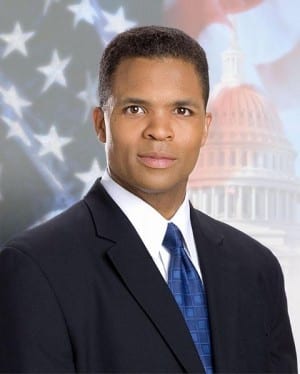
Having dedicated hundreds of hours to the Tropico series, I feel comfortable labeling myself as an expert. I’ve assumed the role of dictator El Presidente on countless occasions, only to eventually lead my island nation to prosperity and military superiority, which is why with the release of Tropico 5, my inner-ruler is clawing to break free.
The biggest problem facing the newest excursion to the tropical island isn’t the changes, it’s the implementation of them.
For newcomers, Tropico 5 is a game about building a city. In a very Sim City-esque design, you’re El Presidente, the dictator of a beautiful island. You get to decide where to build farms, businesses, homes, churches, and any other of the dozens of buildings that grace the landscape.
The wonderful thing about Tropico is that it’s so much deeper than basic city design. You’re forced to balance how much the different factions on the island respect and appreciate you. If you build a district filled with debauchery, taverns, casinos, and other establishments of the sort, the religious sect will hate you. Rule the island like a communist and, sure, you’ll gain the support of that faction, but lose the support of the capitalists.
Further, you’re always hard at work creating trade agreements and doing your best to balance the exports and imports that your island sees. You may have an island primed for growing sugar, but your population won’t necessarily eat sugar, so importing and distributing food is just as important as the island’s treasury.

Finally, keeping on the good side of the US, the EU, Russia, and other nations is important for a couple of reasons. First, every year you’ll get financial aid from the superpowers — and money is always helpful — but more importantly, you’ll ensure that nobody invades you. Start pissing off everybody and you may face a rebel threat on your island as well.
It’s always been a socio-economical struggle to make sure the scale is never tipped too far one way or the other.

In years past, playing Tropico’s campaign saw you moving from map-to-map, each time dedicating hours to accomplishing a single task, only to see the map disappear once you’ve hit your goal. Starting over from scratch seemed more of a time-sink than a benefit to players. This year though, the campaign progresses well, giving you and your kin (another new feature!) a chance to ensure that the choices you make carry over from one map to the next.
It’s this new feature that has essentially ruined the campaign.
I’m not too modest to say that I’m an expert at playing Tropico. If you’d like to test your mettle in the new multiplayer mode, I’d be more than happy to give a demonstration. But being so good at the game now comes with drawbacks. Because I’ve learned how to create a living, breathing world, I can quickly take my island’s treasury into the hundreds of thousands of dollars. Granted, the cost for operating my island is expensive, but the export of products will more than make up for it.

When you start a new mission on the campaign, it’s great that you get to keep the island you’ve designed previously. It’s not great that your treasury is reset to $20,000 at the start of each map. As missions get harder, it becomes harder to please your population. With an enormous city planted on your island, you’ll quickly go into debt at the start of some of the later missions. When that happens, your citizens lose faith in you.
Even with large exports and the ability to stabilize the economy, going heavily into debt at the onset of a mission is your doom. I’ve been forced to restart my campaign numerous times in an attempt to “slow play” the game. Each time I’m able to get a bit farther, but each time the inevitable collapse of my economy happens, with the result being that I’m voted out of office.

It’s frustrating knowing that regardless of the play style I implement, failure is inevitable unless you stick to a particular order of advancement. Of course, I could take on the role of a true politician and simply cheat.
To match the campaign progression, the game doesn’t necessarily feel like an advancement from Tropico 4. An array of new buildings have been added, including some unique, one-time use construction, but a lot has been removed to make way for them. In what I assume is an effort to streamline construction, many useful structures have been removed. This is probably because the islands genuinely feel smaller and more cramped, with many maps having massive amounts of area that is simply inaccessible and unable to be used for building.

em>Tropico 5 is, visually, better than previous titles, but that’s just about it in terms of developmental progression. In all other aspects, the game seems to have taken a step back, despite the changes. For fans of the series, you’ll see nods to some great ideas being made, but the way they’re implemented makes the game fall backwards instead of forward.
Overall score: 5 out of 10














